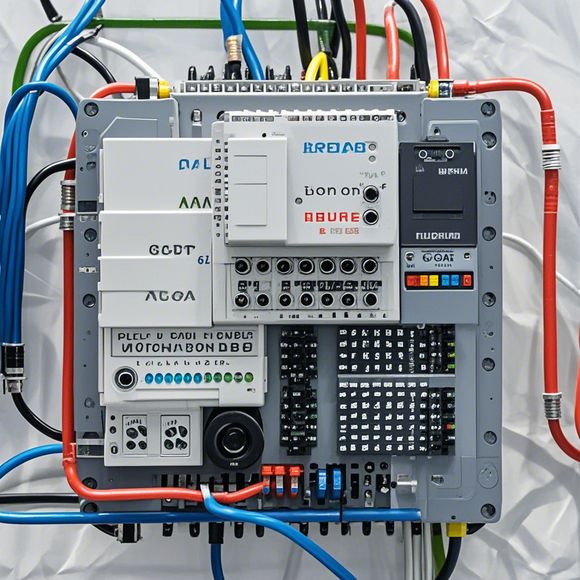Introduction to Programmable Logic Controllers (PLCs)
Programmable Logic Controllers (PLCs) are electronic devices that allow for the automation of industrial and manufacturing processes. They can control various types of machines, such as pumps, valves, motors, and conveyors, by receiving commands from a centralized control system. These devices use a variety of programming languages to define the logic needed for each task, making them highly versatile in their application. The ability to program these controllers allows them to adapt quickly to changes in the process requirements, which is crucial for industries like automotive and aerospace, where constant updates and adjustments are necessary. Overall, Programmable Logic Controllers have become an essential tool in modern manufacturing, allowing for increased efficiency and productivity.
In the world of manufacturing and industrial automation, programmable logic controllers (PLCs) are the backbone of many modern systems. These versatile devices are designed to control and monitor processes by processing data from various sensors and actuators, making it a key component in ensuring efficient production and reliable operations. Let's dive into the world of PLCs, exploring their features, applications, and how they can enhance your business.
Firstly, let's talk about what PLCs are. PLCs are microprocessor-based devices that allow for the automation of complex industrial processes. They come equipped with a variety of inputs such as sensors, actuators, and communication interfaces, enabling them to interact with other machines and systems. This means that PLCs can perform various tasks, including monitoring, controlling, and adjusting processes based on data received from these inputs.
One of the main benefits of using PLCs is their flexibility. With a range of configurations and programming languages available, you can tailor PLCs to meet specific needs of your industry. Whether you need a simple device to control a single process or a complex system involving multiple subsystems, PLCs offer an efficient solution. Moreover, their modular design allows for easy upgrades and maintenance, ensuring that your system remains robust and reliable over time.

Another critical aspect of PLCs is their reliability. Thanks to advanced hardware and software technologies, modern PLCs are highly reliable and capable of handling even the most demanding environments. They have built-in redundancy mechanisms that prevent system failures and minimize downtime, ensuring that your production runs smoothly and efficiently. Additionally, PLCs can be programmed to perform various safety functions, such as alarm triggering and emergency stop commands, further enhancing their reliability in hazardous situations.
The ability to communicate with other systems is another significant feature of PLCs. Many modern PLCs come equipped with network connectivity options, allowing them to connect to various types of devices and networks. This enables you to integrate PLCs with other industrial control systems, such as HMI screens or SCADA systems, creating a more integrated and efficient workflow. Moreover, PLCs can be programmed to send and receive data over wireless connections, facilitating real-time monitoring and adjustment of processes.
Finally, when it comes to cost-effectiveness, PLCs are an excellent investment. Their long lifespan, low maintenance requirements, and high efficiency make them cost-effective in the long run. In addition, their modular design means that you can easily expand or replace components without having to purchase new equipment, saving money on replacement costs. Furthermore, since PLCs can handle a wide range of applications, including small-scale manufacturing and large industrial projects, their cost per function is generally lower than other types of automation systems, making them a cost-effective choice for any organization looking to streamline their operations.

In conclusion, PLCs represent a powerful tool for modern industrial automation systems. With their flexible configurations, reliable operation, ease of integration, and cost-effectiveness, PLCs are essential for businesses seeking to optimize their production processes and maintain efficient operations. By investing in PLCs, you can not only improve the quality of your products but also reduce waste and increase productivity, ultimately driving growth and profitability for your company. So why wait? Start maximizing the potential of your PLC investments today!
Content expansion reading:
Articles related to the knowledge points of this article:
Mastering the Art of Plc Controllers: A Comprehensive Guide to Understand and Implement
PLC Controller for Manufacturing Automation
The cost of a PLC Controller: A Comprehensive Analysis
PLC Programming for Automation Control in the Manufacturing Industry
PLC (Programmable Logic Controller) Control System Basics
Plumbers Rule! The Role of PLC Controllers in the World of Waterworks